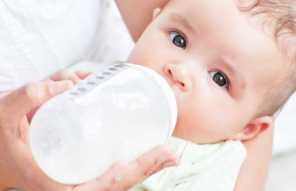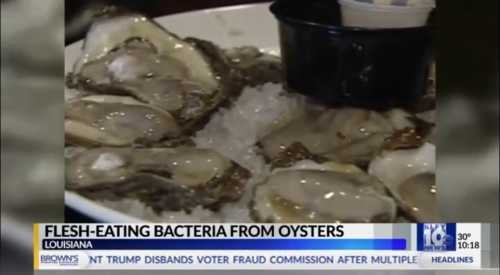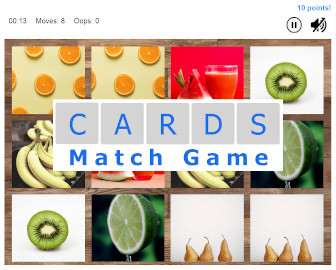Baby formula risks: deadly bacteria, Cronobacter (Enterobacter sakazakii)
There are a lot of health benefits for babies breastfeeding, from absorbing antibodies to help babies fight off viruses and bacteria, to lowering their risk of having asthma or allergies. Babies who are breastfed exclusively for the first 6 months, without any formula, have fewer ear infections, respiratory illnesses, and bouts of diarrhea ("Breastfeeding Benefits for Mom and Baby - WebMD"). If you need to use baby formula, it is not just the breastfeeding benefits your baby doesn't get; there are possible deadly health risks that are important to know about so you can take the appropriate precaustions to minimize any risk and have a healthy, happy baby.
Baby Axel's story:
Then, one night in June, Axel became ill. His parents decided it wasn’t the normal infant fussiness, so they took Axel to the emergency room.
“He started having mini-stroke and then continued to have seizure after seizure after seizure,” Kory Shears said.
Nine days later, Axel died. The cause of death: Enterobacter sakazakii, meningitis and sepsis.
Enterobacter sakazakii, which was the root cause of Axel’s death, is a bacteria that leads to a rare condition that usually affects infants less than a month old. The Centers for Disease Control and Prevention says on average, four to six cases are reported in the U.S. every year.
Axel’s parents say they think he got it from the powdered infant formula they were giving him.
“For a child of his age — at 2 weeks, a month — there’s no other way to get it other than the formula,” Kory Shears said.
But how the bacteria got in the formula remains a mystery. The Shears’ lawyer says half a used can of Enfamil Gentlease and a full, unopened can both tested negative for the germ. There wasn’t enough left in another empty can to test. The sterilized water used to make Axel’s bottles also tested negative.
The opened can is a major factor:
A spokesman for Mead Johnson, which manufactures the formula, said the company has cooperated fully with the U.S. Food and Drug Administration. Spokesman Chris Perille said dozens of cans from the same lot have been tested and all of them were clear.
In fact, past cases investigated by the CDC were found to have developed after the cans were opened. A 2011 outbreak investigation of four cases in four states found no signs of the bacteria in formula with the same lot numbers as the formula traced to the outbreak cases. The manufacturers also tests the products before they leave the plant.
So while it appears unlikely the formula was contaminated in the can, powdered formula remains susceptible to the germ once the can is opened.
That’s why the Shears are speaking out.
“We never have heard of this infection, ever,” Jamie Shears said.
“Nobody has,” Kory Shears said.
(via "Rare bacteria kills baby; source unknown")
Via the CDC website, article 'Enterobacter sakazakii Infections Associated with the Use of Powdered Infant Formula --- Tennessee, 2001":
To prevent additional infections, the hospital made several policy changes. Principal formula type for NICU patients was changed from powdered formula to a commercially sterile, ready-to-feed liquid formula. Portagen is no longer used; other powdered formula products are reserved for specific needs and, when necessary, are prepared in a designated formula preparation room in the pharmacy. The amount of allowable administration or "hang" time has been reduced from 8 hours to 4 hours. As of April 10, 2002, no additional episodes of infection or colonization have been detected at the reporting hospital.
From the CDC website, "Learn About Cronobacter Infection"
Cronobacter (formerly calledEnterobacter sakazakii) is a germ found naturally in the environment that can survive in very dry conditions.Cronobacter has been found in dry foods, such as powdered infant formula, powdered milk, herbal teas, and starches. It has also been found in sewer water and may be found in other places, too.
...
Cronobacter bacteria can cause severe blood infections (sepsis) or meningitis (an inflammation of the membranes that protect the brain and spine). Infants 2 months of age and younger are most likely to develop meningitis if they are infected with Cronobacter. Infants born prematurely and those with weakened immune systems are also at increased risk for serious sickness from Cronobacter.
In infants, the sickness generally starts with fever. It usually includes poor feeding, crying, or very low energy. Young infants with these symptoms should be taken to a doctor.
...
Not Just Infants
Cronobacter can also cause diarrhea, problems in wounds, and urinary tract infections in people of all ages. The elderly and people whose bodies have trouble fighting germs because of a sickness they already have are most at risk.
Illnesses Linked to Powdered Infant Formula
In some outbreak investigations, Cronobacter was found in powdered infant formula that had been contaminated in the factory. In other cases, Cronobacter might have contaminated the powdered infant formula after it was opened at home or elsewhere during preparation.
Since Cronobacter lives in the environment, it's likely there have been other sources of this rare sickness.Powdered Infant Formula is Not Sterile
Manufacturers report that, using current methods, it is not possible to get rid of all germs from powdered infant formula in the factory. Powdered infant formula can also be contaminated after the containers are opened. Very young infants, infants born prematurely, and infants whose bodies have trouble fighting off germs are at the highest risk.
To best protect your infant, here are some things you can do:
Breastfeed. Breastfeeding helps prevent many kinds of sicknesses among infants. Almost no cases ofCronobacter sickness have been reported among infants who were being exclusively breastfed (meaning, the baby was fed only breast milk and no formula or other foods).
If your baby gets formula, choose infant formula sold in liquid form, especially when your baby is a newborn or very young. Liquid formulations of infant formula are made to be sterile and should not contain Cronobacter germs.
If your baby gets powdered infant formula, follow these steps.
If your baby gets powdered infant formula, there are things you can do to protect your baby from sickness from many germs – not just Cronobacter. Good hygiene, mixing the formula with water hot enough to kill germs, and safely storing formula can prevent growth of Cronobacter and other germs. These are keys to keeping your baby safe and healthy.- Clean up before preparation
- Wash your hands with soap and water
- Clean bottles in a dishwasher with hot water and a heated drying cycle, or scrub bottles in hot, soapy water and then sterilize them
- Clean work surfaces, such as countertops and sinks
- Prepare safely
- Keep powdered formula lids and scoops clean (be careful about what they touch)
- Close containers of infant formula or bottled water as soon as possible
- Use hot water (158 degrees F/70 degrees C and above) to make formula
- Carefully shake, rather than stir, formula in the bottle
- Cool formula to ensure it is not too hot before feeding your baby by running the prepared, capped bottle under cool water or placing it into an ice bath, taking care to keep the cooling water from getting into the bottle or on the nipple
- Before feeding the baby, test the temperature by shaking a few drops on your wrist
- Use up quickly or store safely
- Use formula within 2 hours of preparation. If the baby does not finish the entire bottle of formula, throw away the unused formula.
- If you do not plan to use the prepared formula right away, refrigerate it immediately and use it within 24 hours. Refrigeration slows the growth of germs and increases safety.
- When in doubt, throw it out. If you can't remember how long you have kept formula in the refrigerator, it is safer to throw it out than to feed it to your baby.
- Clean up before preparation
Practice proper hygiene
Wash your hands carefully with soap and water, especially after using the toilet or changing diapers. Always wash your hands:If soap and water aren't available, use an alcohol-based hand sanitizer. These alcohol-based products can quickly reduce the number of germs on hands in some situations, but they are not a substitute for washing with soap and water.
- before preparing and feeding bottles or foods to your infant
- before touching your infant's mouth, and
- before touching pacifiers or other things that go into your infant's mouth.
It is also important to keep all objects that enter infants' mouths (such as pacifiers and teethers) clean.



 Report a concern
Report a concern

 Add Comment
Add Comment



